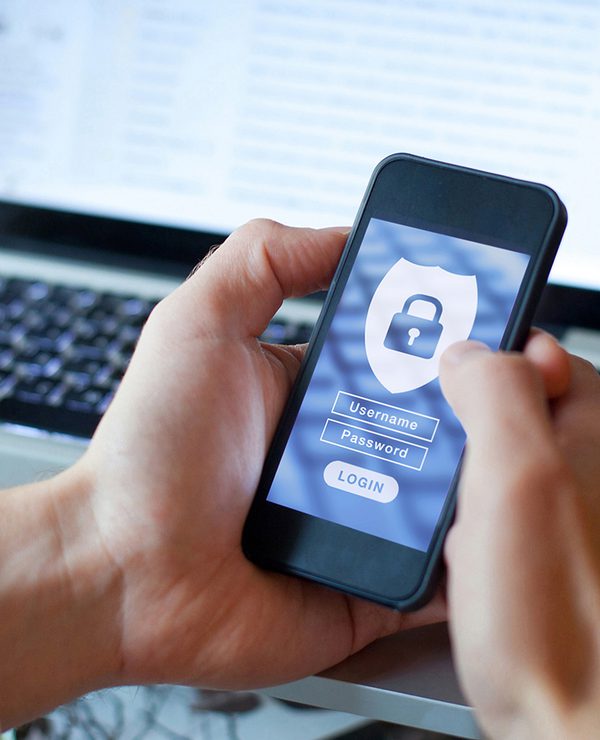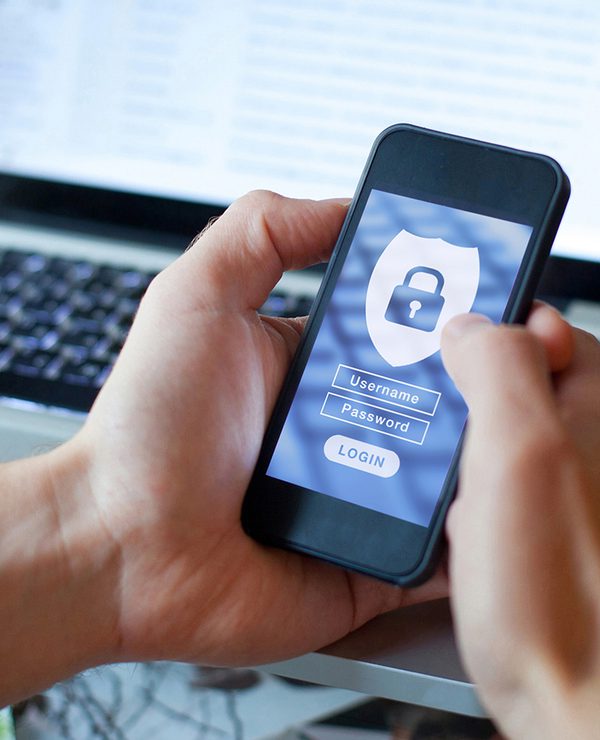November 18, 2024
Cybersecurity and Social Media: Keeping Your Financial Information Safe

While social media can be a fun way to stay connected with friends and family, it does come with some financial risks. This article explains how your personal information can be at risk through your social media accounts and provides tips to protect yourself.
Did you know that around 60% of the global population uses one or more social media platforms?
With so much of the population using social media, it’s hard not to appreciate its benefits. Businesses in all industries use the power of social media to connect with consumers, attract talent, increase brand awareness and provide opportunities for new business. People have instant access to information at their fingertips, including from top voices and leaders in a variety of fields.
While social media offers a wealth of insights, there are cyber threats that may lurk if you’re not careful. Private and public information published online can be the gateway for criminals to access personal email addresses, bank accounts, investment accounts and other private data.
Social media can be a doorway to fraud.
Cybercriminals try to trick victims into providing personal information through social engineering or impersonating well-known, trusted people online. Often, this may seem like a private conversation between someone you know. Social engineering might also look like an email from a legitimate source, like a coworker.
With these tactics, cybercriminals use psychological manipulation to get people to share information, download software or even visit unsafe websites that can install malware on your device. The cybercriminal then can retrieve data for financial theft, such as accessing bank accounts, opening credit in your name, or using your bank account to pay for streaming services or other online subscriptions.
Fraudsters are also commonly using social media messaging apps, including WhatsApp, to imitate nationally recognized financial thought leaders, attempting to trick unsuspecting individuals into investing in cryptocurrency and promising large returns. The fraudsters provide links to invest, and once they have what they want from their victims, they will shut down the social media account.
Social media and cybersecurity tips:
While it can be scary to think about what is shared online, you can take steps to keep your data safe and prevent it from being used for cybercrimes. The tips listed below are simple and easy to implement.
- Avoid oversharing your personal plans. Be cautious about revealing your plans to attend specific social events, outings or vacations. Don’t provide specific dates and locations.
- Don’t share too much employer information. While listing the company you work for is common, don’t share sensitive data about your organization, including company structure, networks or organizational changes.
- Be cautious about suspicious emails. Hover over the links to see if it’s from a legitimate, trusted sender. If in doubt, reach out to the sender separately to confirm the information being requested.
- Be aware that messages sent over social media about investment opportunities almost always lead to a scam. Don’t reply and remember that your financial advisor should not be reaching out to you individually on social media, including WhatsApp, to provide personalized advice or investment recommendations.
- Always be alert when receiving new offers. Don’t assume messages shared on your favorite apps, or even business communications, are safe.
- Utilize multi-factor authentication. This security method requires users to verify their identity using multiple forms of authentication to access an account or application. If someone tries to access your account without your knowledge, you’re more likely to be alerted before they break in.
- Ask financial providers about their safety protocols. Speak with anyone who helps manage your financial accounts, including your financial advisor, to learn how they protect your assets and sensitive information. Make sure they have a secure way of confirming your identity before making changes to your accounts or transferring money.
If you have additional questions about strategies to keep your personal financial information out of the wrong hands, please reach out to your wealth advisor. If you are not working with one or would like a second opinion, we would be happy to help. We encourage you to schedule a phone call or virtual meeting with our Client Development team.
Sources:
Social Media Users 2024 (Global Data & Statistics) | Priori Data
Avoiding Social Engineering and Phishing Attacks | CISA
What is Social Engineering? | IBM
Unexpected messages on social media about investing are almost always scams | Consumer Advice
For informational and educational purposes only. Third-party information is deemed to be reliable, but its accuracy and completeness cannot be guaranteed. Third-party information may become outdated or otherwise superseded without notice. Neither the Securities and Exchange Commission (SEC) nor any other federal or state agency have approved, determined the accuracy, or confirmed the adequacy of this information. Please be advised that Buckingham only shares video and content through our website, Facebook, LinkedIn page, and other official sources. We do not post investment advice on WhatsApp, Telegram, other interactive applications, or other similar platforms. Rather, Buckingham provides investment advice only through individualized interactions. R-24-7864.



